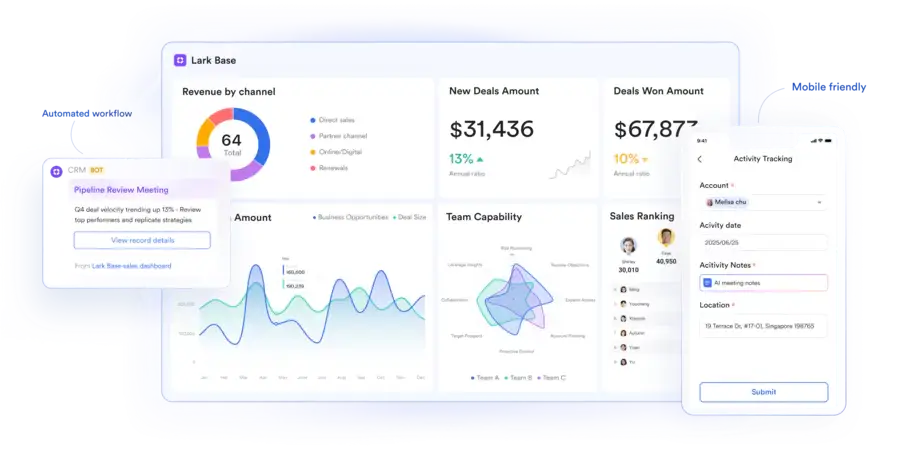In today’s hyper-competitive digital landscape, user experience is everything. Whether launching a startup MVP or modernizing a legacy platform, the choice of frontend technology and the team behind it can make or break your success. React.js, developed and maintained by Meta (formerly Facebook), has long stood out as a go-to JavaScript library for building dynamic and responsive user interfaces. As we move into 2025, React remains a cornerstone of modern web and mobile development.
However, mastering React and leveraging it to its full potential requires more than hiring a few developers. It demands strategy, scalability, and deep technical expertise. That’s why more businesses turn to specialized React development services instead of building in-house teams from scratch. This article explores this growing trend’s key reasons and compelling business advantages of this growing trend.
Access to Specialized Expertise
React is more than just a JavaScript library – it’s a vast ecosystem with rapidly evolving standards, practices, and tooling. Building high-performance, scalable applications in React requires a deep understanding not only of React fundamentals, but also of adjacent technologies such as:
- Next.js for server-side rendering and static site generation
- Redux / Zustand / Recoil for state management
- TypeScript for type safety and maintainability
- GraphQL and REST APIs for efficient data handling
- Tailwind CSS or CSS-in-JS for scalable styling solutions
- Jest / React Testing Library for automated testing
- React Native for cross-platform mobile development
A React development partner comes equipped with a full team of professionals who live and breathe this stack daily. This includes not just React developers, but also UI/UX designers, QA engineers, DevOps specialists, and project managers who understand how to work in concert to deliver results.
Benefits of Partner-Level Expertise
- Faster Problem Solving – Seasoned React developers have seen many edge cases and performance bottlenecks. They can quickly identify the most efficient solutions, avoiding trial-and-error approaches that less experienced developers might use.
- Future-Proof Architecture – A development partner with React experience ensures that your app is built using scalable architecture patterns. This includes component reusability, code splitting, lazy loading, and modular folder structures, making it easier to maintain and expand your app over time.
- Strategic Tech Decisions – Which state management tool should you use? Is Next.js the right fit for your SEO strategy? Should your app use server components or stick to client-rendered pages? A seasoned partner can answer these questions confidently, based on what will deliver the best performance and business outcomes, not just what’s trendy.
Accelerated Time-to-Market
Speed matters – especially in 2025 when the average user expects fast, seamless digital experiences. React development agencies already have streamlined workflows, component libraries, and DevOps pipelines. This lets businesses move from ideation to launch faster than hiring and onboarding an in-house team.
Real-World Advantage
Partners often offer pre-built components and reusable code that reduce development cycles while adhering to best practices in accessibility, responsiveness, and cross-browser compatibility.
Scalability Without the Headaches
Hiring an in-house team may be viable initially, but scaling introduces complexity. A React development partner provides flexibility – you can scale up or down as needed without worrying about recruitment, training, or retention.
Especially Important for:
- Startups looking to scale post-MVP.
- Enterprises need additional resources for a specific project phase.
- Businesses managing seasonal demand or one-off campaigns.
Focus on Core Business Goals
Managing a full-stack engineering team diverts resources from core business functions like product strategy, marketing, and customer support. A React development partner allows business leaders to focus on what matters most, while experts handle the technical execution. Instead of micromanaging development sprints, executives and product owners can concentrate on roadmap planning, customer feedback, and growth strategies.
Reduced Risk and Increased Quality Assurance
A good React development partner brings mature QA practices, peer review processes, and continuous integration setups. This results in fewer bugs, better performance, and improved user satisfaction.
Risk Mitigation:
- Regular audits of code quality.
- Automated testing frameworks.
- Robust version control and documentation standards.
Long-Term Support and Maintenance
Launching a product is just the beginning. Applications need updates, patches, performance tuning, and new features over time. Development partners typically offer ongoing support contracts to ensure your product remains stable and secure long after launch.
Cost Efficiency Over Time
While hiring in-house developers at first glance might seem more cost-effective, hidden costs, such as turnover, benefits, downtime, and recruitment, add up. React partners offer predictable pricing models and measurable ROI, especially when considering time saved and product performance. Total Cost of Ownership (TCO) is often lower when using an experienced partner who delivers faster and avoids costly rework.
The Bottom Line
In 2025, digital products will no longer be optional – essential to growth, customer engagement, and innovation. Choosing React as your frontend framework is a smart move. However, to truly capitalize on its capabilities, partnering with an experienced React development team can be a game-changing decision.
From accelerating launch timelines to reducing technical risk and maximizing scalability, the business case is clear: a React development partner is not just a vendor, but a strategic asset. Whether you’re a startup aiming to disrupt or an enterprise striving to modernize, now is the time to invest in the right technical partner to bring your vision to life efficiently, intelligently, and successfully.













